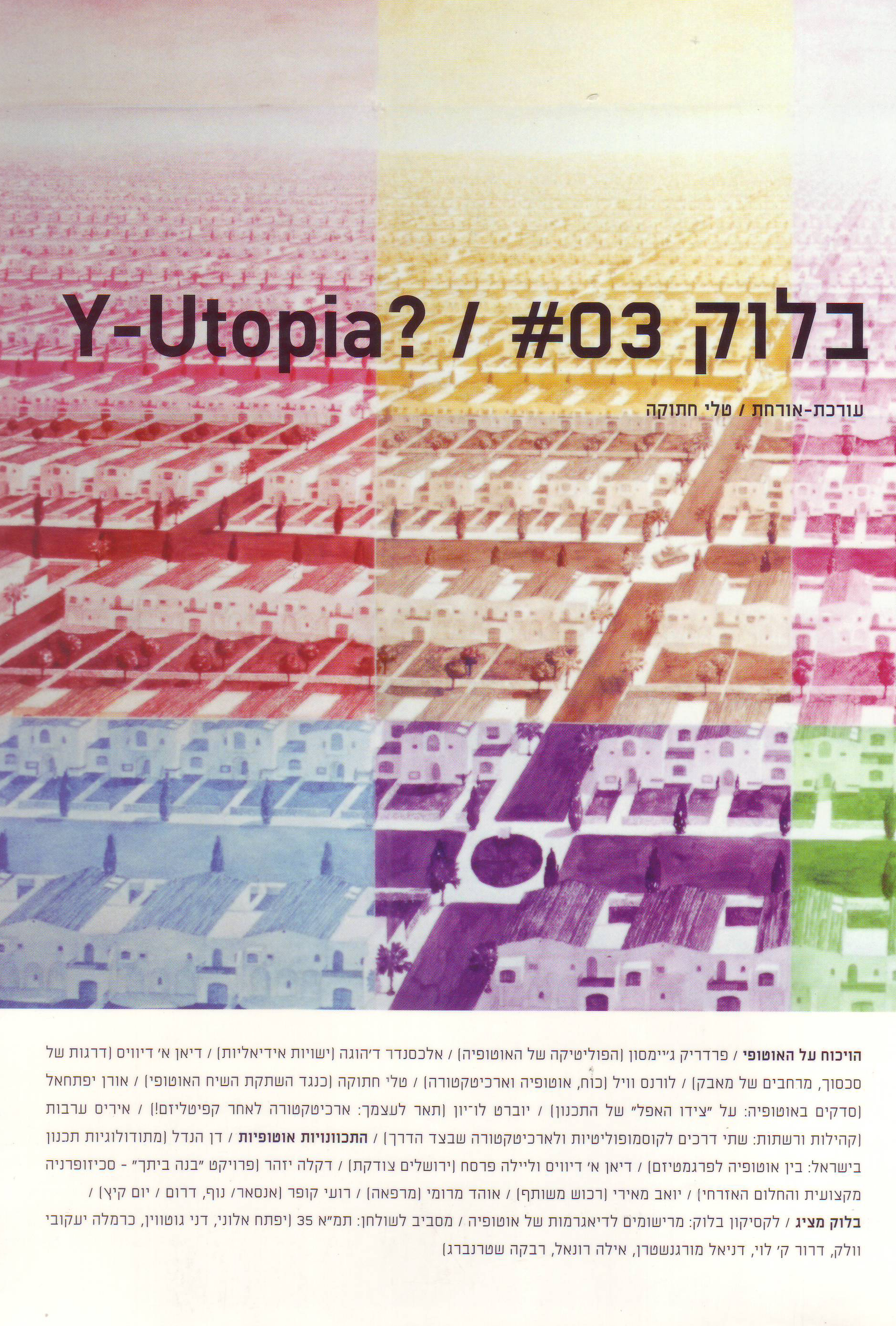Published 2006
Guest editor: Tali Hatuka
Block Magazine, Tel Aviv [Hebrew/English]
This volume questions the contribution of the numerous architectural-political, architectural-social, and architectural-cultural events in Israel, asking whether there has been a radical shift in the thought and methodology of the discipline. The study asks, is this a fashionable embrace of a political discourse or a real debate about the values of our society? This question is especially significant within the Israeli-Palestinian context, where societies of immigrants and refugees are embroiled in a bloody conflict over a disputed environment. This context gives rise to extreme situations that, in turn, present the current architectural praxis hyper-realistically, in all its helplessness. As this volume argues, this condition is not, however, exclusive to Israel. Thus, it is instructive to understand it within the broader context of the contemporary architectural culture by asking three primary questions: (1) What is radical practice? (2) What is radical practice in an age of late capitalism? (3) Does radical practice exist in Israel? These questions are, in a sense, implicit in the papers collected in this volume, which address the role of architectural “visioning” through the lens of utopian drawings (generators), utopian intentions (interventions) and utopian debate (discourse).
Download:

